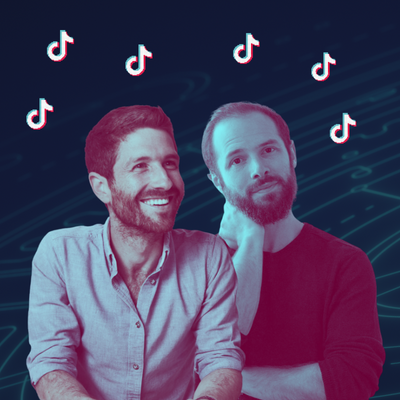Spotlight | Sep 8, 2022
Addressing the TikTok Threat
Imagine it's the Cold War. Imagine that the Soviet Union puts itself in a position to influence the television programming of the entire Western world — more than a billion viewers.
While this might sound like science fiction, it’s representative of the world we're living in, with TikTok being influenced by the Chinese Communist Party.
TikTok, the flagship app of the Chinese company Bytedance, recently surpassed Google and Facebook as the most popular site on the internet in 2021, and is expected to reach more than 1.8 billion users by the end of 2022. The Chinese government doesn't control TikTok, but has influence over it. What are the implications of this influence, given that China is the main geopolitical rival of the United States?
This week on Your Undivided Attention, we bring you a bonus episode about TikTok. Co-hosts Tristan Harris and Aza Raskin explore the nature of the TikTok threat, and how we might address it.
Major Takeaways
TikTok recently surpassed Google and Facebook as the most popular site on the internet in 2021 and is expected to reach more than 1.8 billion users by the end of 2022. A Pew research study just showed that TikTok is the most popular app for teens in the United States, who now spend more time watching and posting to TikTok than to YouTube.
TikTok — which is the flagship app of the Chinese company Bytedance — is not controlled by China. ByteDance and the Chinese Communist Party are two distinct entities, often with conflicting motives. However, the Chinese government does sometimes force its tech companies’ hands, as exemplified by Chinese tech executives notoriously being abducted. So, the Chinese government doesn't control TikTok, but has legitimate influence over it.
We can think of the threat posed by TikTok as falling into two categories: 1) surveillance and 2) algorithmic manipulation. Surveillance refers to American users’ sensitive data being accessed by TikTok, and perhaps the Chinese government. For example, privacy researcher Felix Krause's recently exposed that TikTok can track and capture users’ keystrokes in its in-app browser. Algorithmic manipulation refers to, for example, TikTok’s capacity to amplify pro-China sentiments and suppress those that are anti-China. This capacity for selective amplification has been referred to by our colleague Renée DiResta as "ampliganda," and by Center for Humane Technology as "amplifiganda." It's worth noting these two dangers — surveillance through data gathering and algorithmic manipulation — are not unrelated, because data is what powers the TikTok algorithm, which is then used to manipulate our thinking.
TikTok runs a ‘healthier’ version of its app domestically than which it 'exports' to the rest of the world. For example, in China, TikTok features educational content and limits use for kids under 14 to 40 minutes per day, with opening and closing hours at 6am and 10pm.
TikTok's threat extends to other platforms, because other platforms must mimic its features in order to compete — a classic multipolar trap which we refer to as “TikTok-ification.” For example, Instagram introduced Reels and YouTube introduced YouTube Shorts in order to compete with TikTok's addictive short-form videos.
While Exxon and Chevron cause oil spills, we can think of TikTok and YouTube as causing polarization spills. The difference is: oil spills don't inherently constrain our government’s capacity to deal with them, whereas polarization spills directly implicate our capacity for shared sense-making and governance.
Congressional activity against TikTok is picking up. The commissioner of the Federal Communications Commission Brendan Carr recently wrote a public letter to Apple and Google asking them to remove TikTok from their app stores. In a more powerful move, bipartisan leaders on the Senate Intelligence Committee asked the Federal Trade Commission to investigate TikTok's data practices and corporate governance over concerns that they pose privacy and security risks. President Biden recently made an Executive Order — the Protecting Americans' Data from Foreign Surveillance Act — which creates a review process to prevent foreign adversaries from accessing the sensitive data of US citizens. The Executive Order would encompass platforms beyond TikTok, such as those based in Russia.
TikTok's response to Congressional activity is also picking up. For example, TikTok recently made a statement about its commitment to election integrity, and announced its creation of an “Elections Center" to be a hub for authoritative election information.
Other recommended reading
Pew Research Center's "Teens, Social Media and Technology 2022"
https://www.pewresearch.org/internet/2022/08/10/teens-social-media-and-technology-2022/
Pew's recent study on how TikTok has established itself as one of the top online platforms for U.S. teens
Axios' "Washington turns up the heat on TikTok"
Article on recent Congressional responses to the threat of TikTok
Felix Krause on TikTok's keystroke tracking
https://twitter.com/KrauseFx/status/1560372509639311366
A revelation that TikTok has code to observe keypad input and all taps


